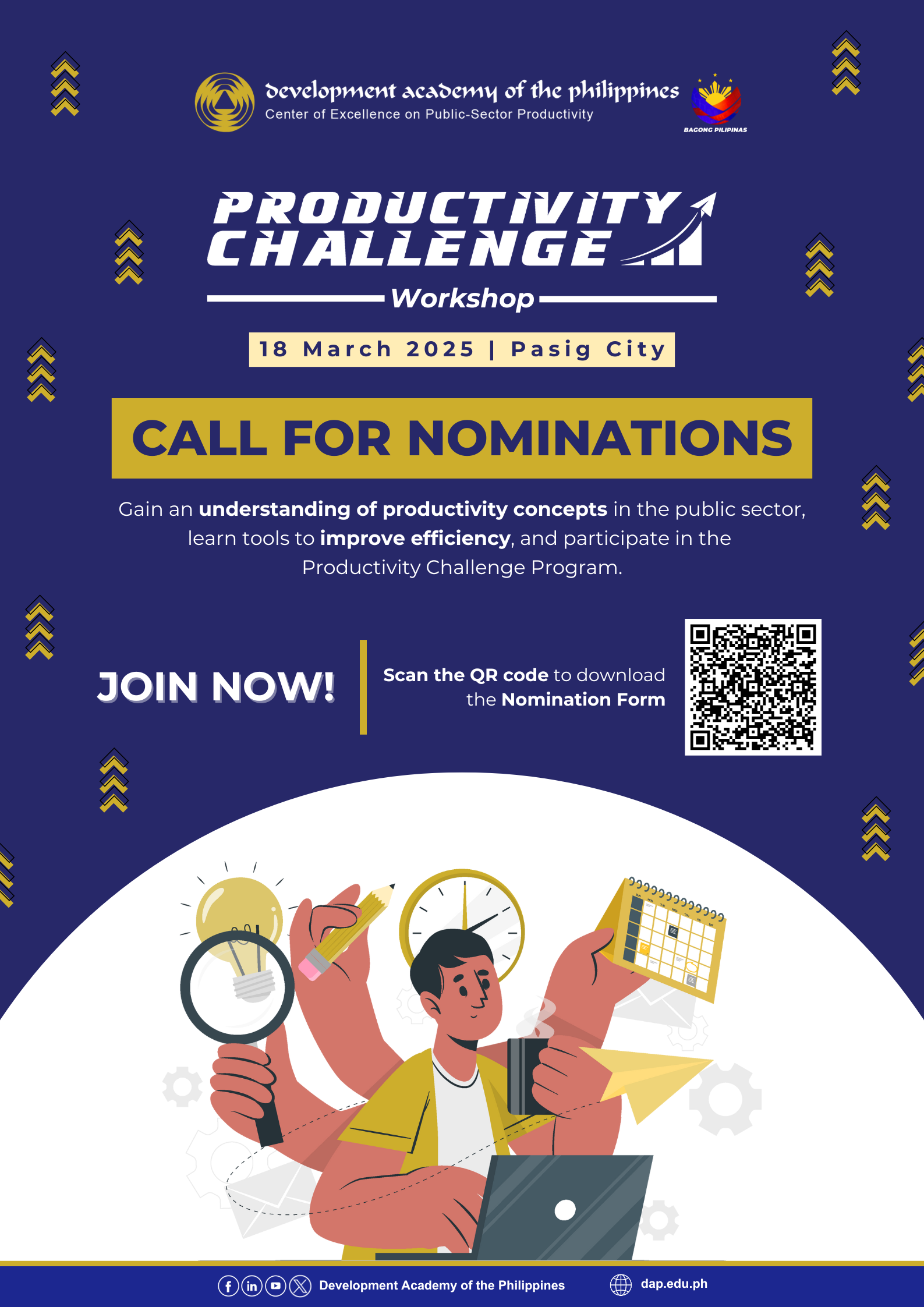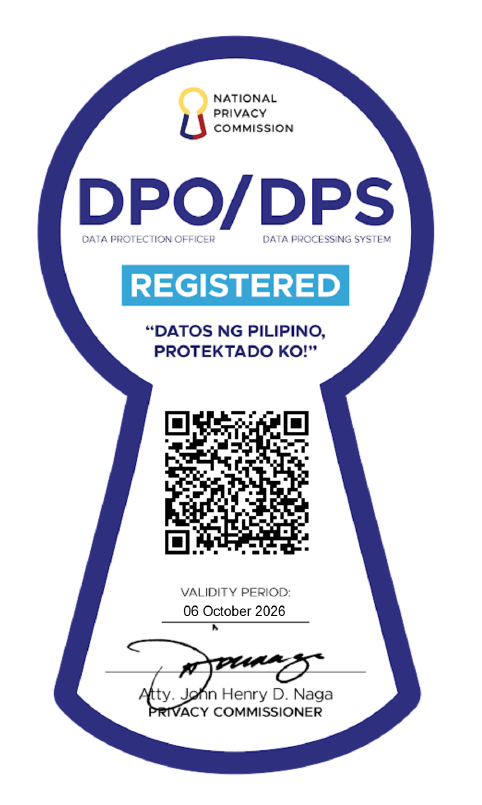The fast-paced world requires countries to adapt to emerging challenges, moreso now with the COVID-19 pandemic. Despite the current limitations, the Development Academy of the Philippines (DAP) continued equipping its staff with the knowledge, tools, and skills needed to assist the public sector.
One of these activities is the Training on Facilitating Innovative and Creative Thinking for the Public Sector held from 8 to 12 June 2020. Conducted through the Technical Expert Services of the Asian Productivity Organization, it aimed to strengthen the DAP’s ability to lead innovation workshops in the public sector and develop a core group of facilitators within the academy.
Twenty-five participants and nine observers from the Office of the Senior Vice-President for Programs, Center for Governance, Productivity and Development Center, Public Management Development Program, and Asian Productivity Organization Liaison Office joined the online course.
Throughout the activity, the participants learned how to create safe spaces for ideas, understand themselves and the organization better through mindsets, and use new tools for generating and planning innovation projects. Scott Goldner and Esan Lee from the German innovation incubator The DO School guided the participants through four online workshops and independent learning exercises.
Participants listed several takeaways, notably new ideation tools and the value of psychological safety in workshops and organizations. “I realized that it does make a difference knowing that you feel safe in an environment, that safe space where you can express freely your thoughts, feelings, and ideas,” said Maria Veronica Angeles from the PDC.
“By using content such as innovation mindsets and psychological safety, we wanted to help the participants to consider the role of the individual and in group norms & dynamics in impacting innovation,” explained Goldner, who is also The DO School Director of Individual Development.
Learning by DOing
Aside from the content, the mode and tools also pushed the participants to venture into unfamiliar territory. Nadine Malapira from the CFG said she “was curious about how the training will be conducted since it is going to be online and that we’ll have remote resource persons from different time zones.”
“I was amazed with the technology,” Angeles remarked, “the technology did not stop us from being creative.” Instead, she found everyone to be “open and excited” and that the “silo thinking was actually removed.”
Video conferencing and “whiteboard” platforms allowed the same level of interactivity and collaboration during the workshops in a shorter period of time. In between sessions, the participants accessed articles and videos, as well as the tools and outputs from the workshops, through a training group on The DO School’s platform. Goldner and Lee also interacted with the group using messages or by posting announcements.
For their final output, the participants worked in teams to develop action plans for their chosen projects. They worked mostly independently, with Lee and Goldner assisting with the platform and providing feedback and encouragement.
According to Goldner, the program was “designed as a learning journey, intended to have participants learn by DOing.” He further explained that they “used new content, tools, inspirational articles and videos, and, most of all, experiences, to guide the participants through problem-solving around deepening the innovation culture at DAP and in the Philippines, while experiencing the potential of online engagement and technical tools to spark engagement in an accessible way.”
Beyond the training, the participants can continue developing their respective projects and engage the DO Community. They can also apply the lessons in their other initiatives. Angeles said “an open and creative mind are very much vital” and “it is important to be sensitive and empathize to be able to gain the trust of our clients,” especially since her work involves consultations and customized assistance.
For Malapira, the experience with training showed that “learning should not stop despite a pandemic.” She added: “We could always think of innovative ways to sustain this. This Innovation Bootcamp with the DO School just proved that distance learning can be effective and interactive, and the public sector should not be intimidated to try these things.”
###




